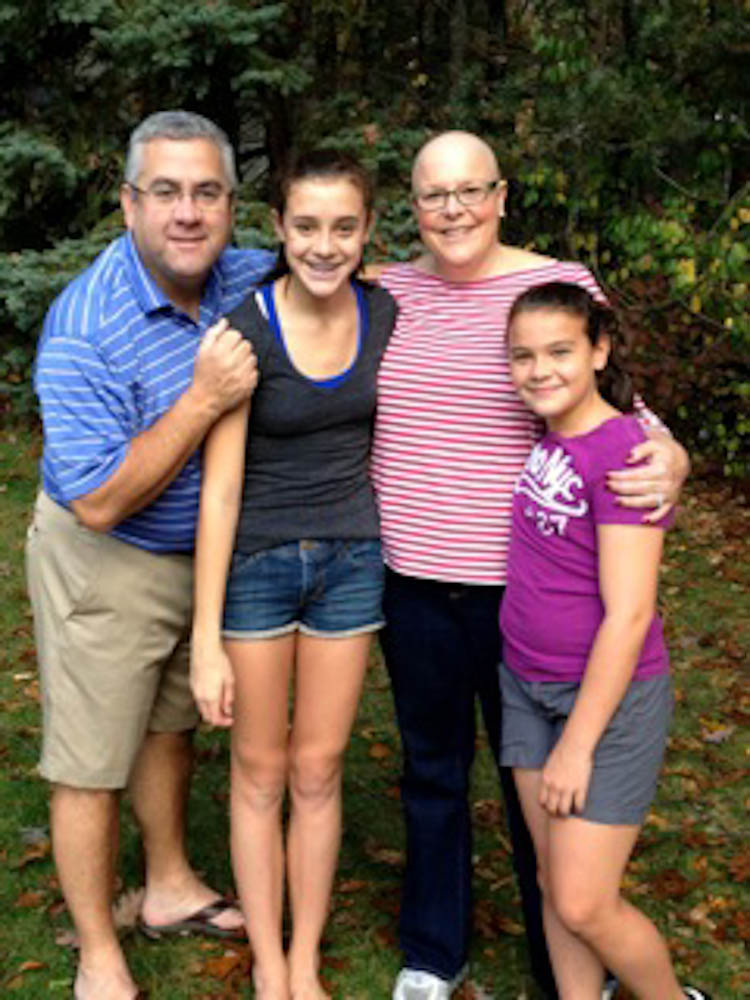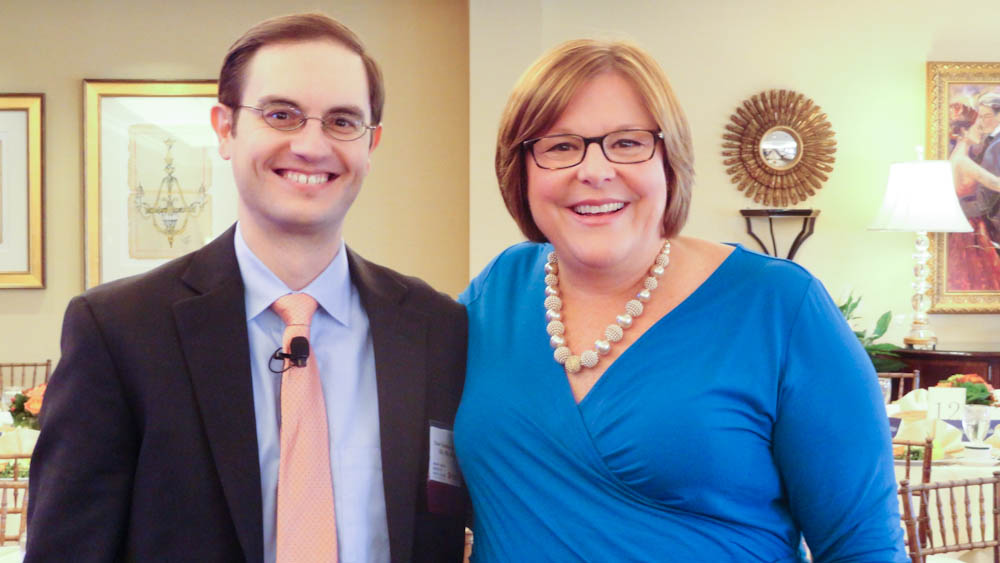Mimi Gallagher never missed a gynecologist appointment. Her maternal grandmother died from ovarian cancer in her early 70s, and Gallagher, at 46, was well aware of her risk. Despite her diligence, and years of worry-free trips to the gynecologist, the mother of two was diagnosed with stage III c ovarian cancer.

Troubling symptoms in July 2012, including bloating, constipation, and lethargy, led Gallagher to visit her gynecologist, primary care physician, and a gastrointestinal specialist, but, she says, “Ovarian cancer was never on anyone’s radar.” However, a vaginal ultrasound soon confirmed her cancer, and she was referred to a surgeon who removed all visible signs of cancer.
Gallagher and her husband were shocked: “Within four days, I went from a stay-at-home, active mom to a cancer patient about to undergo a nine-plus hour surgery.
After surgery, Gallagher received four months of intraperitoneal chemotherapy, during which chemotherapy drugs are injected directly into the abdomen through a catheter. Panos Konstantinopoulos, MD, PhD, at the Susan F. Smith Center for Women’s Cancers at Dana-Farber was her oncologist. Gallagher made it through this intensive therapy with the support of her husband, friends, and daughters, and finished active treatment on December 12, 2012 – now her lucky number.
New Drug Combination Shows Promise for Women with Recurrent Ovarian CancerDespite Metastatic Breast Cancer, Foster Mom Continues Opening Her Home
Like many who receive a cancer diagnosis, Gallagher was kept up at night by one question: “Why did this happen to me?” To find out, and assess her risk of secondary cancers, Gallagher had genetic testing done and found out she carried the BRCA gene, which increases the risk of ovarian and breast cancers.
While Gallagher was relieved to point a finger at something for her diagnosis, and soon underwent a preventative mastectomy to reduce her risk of breast cancer, there was a downside.

“It’s a terrible piece of news given that I am a mother of two teenage daughters and knowing that I may have passed this gene on to them,” Gallagher says. Her daughters are 16 and 13 years old.
“The thought of them being diagnosed with ovarian cancer sends chills down my spine; it just cannot happen. We must find better diagnostic tools where we can catch the disease in its earliest stages.”
Life after cancer is different, Gallagher says. While her blind faith in reaching old age has been taken, today she is cancer-free and dedicated to aiding research for ovarian cancer – for her sake and that of her daughters.
Gallagher recently shared her story with Dana-Farber physician-scientists and women’s cancers supporters at the Susan F. Smith Center Executive Council Luncheon. Watch her full story.
